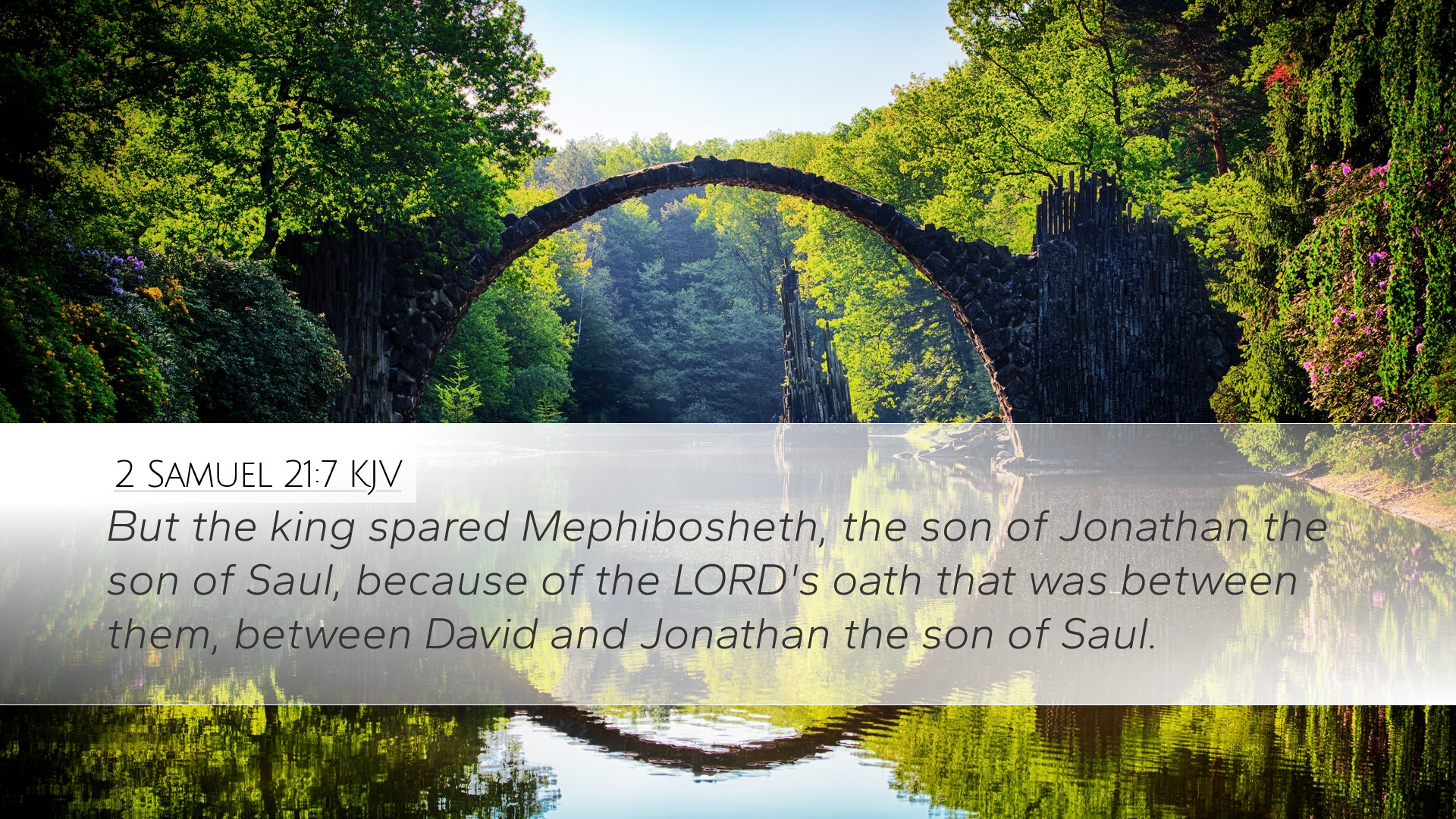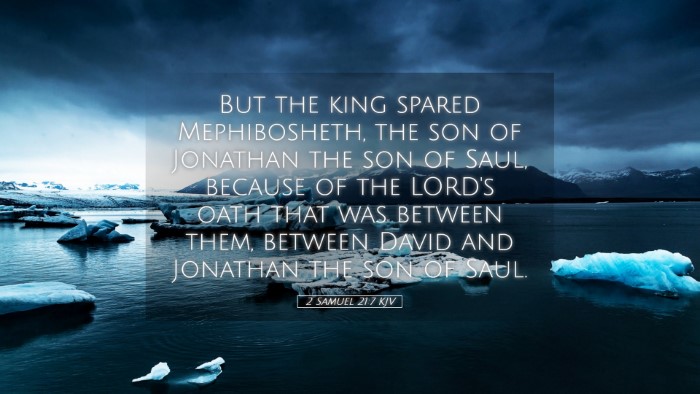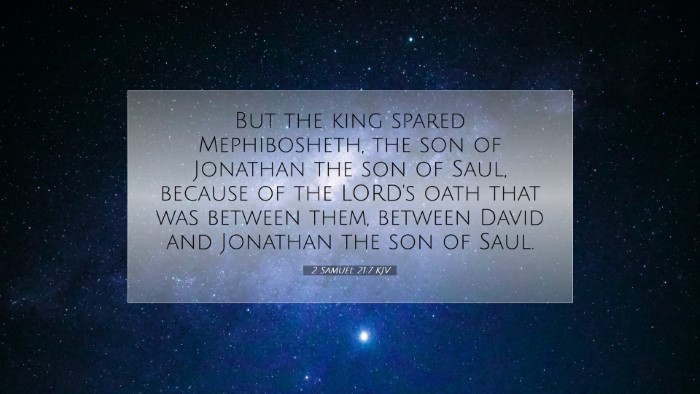2 Samuel 21:7 - A Commentary
Verse: "But the king spared Mephibosheth, the son of Jonathan, the son of Saul, because of the Lord's oath that was between them, between David and Jonathan the son of Saul."
Introduction
This verse encapsulates a critical moment in David's reign, highlighting themes of loyalty, covenant, and divine providence. The narrative emphasizes David's commitment to honoring the oath made with Jonathan, showcasing both the political and personal dimensions of his kingship.
Contextual Background
The events surrounding this verse take place during a time of turmoil in Israel. Following the deaths of Saul and Jonathan, David ascends to the throne but must navigate the complexities of his relationship with the remnants of Saul’s house. The tension is marked by cycles of revenge and mercy as David attempts to consolidate power and establish peace.
Historical Context
Understanding the historical context is vital. David’s decision reflects his deeper understanding of loyalty and lineage, especially in light of the past hostilities between his house and Saul’s. Keeping Mephibosheth alive serves to preserve the memory of Jonathan and, symbolically, the unity of Israel under God's covenantal promise.
Theological Insights
This verse serves multifaceted theological purposes, revealing the depth of God’s promises and the human responses to them.
Covenant Loyalty
Matthew Henry emphasizes the nature of covenant relationships. David's decision to spare Mephibosheth demonstrates the weight of promises made before God; such loyalty is a reflection of God's own steadfastness towards His people. The legitimacy of the monarchy is thus intertwined with divine covenant, showcasing that David's reign is not merely a political arrangement but one rooted in spiritual fidelity.
Divine Providence
Albert Barnes notes that Mephibosheth's preservation indicates God’s providential care. It serves as a reminder that even in the midst of strife, God can preserve those who are weak and vulnerable. The relationship between David and Mephibosheth is emblematic of how God's grace often favors the seemingly inconsequential, offering protection to those who are undeserving.
Character Analysis
David is both king and friend in this narrative. His actions invite introspection regarding the moral fabric of leadership.
David as a Merciful Leader
Adam Clarke suggests that David's sparing of Mephibosheth solidifies his reputation as a leader of integrity, emphasizing mercy as a core attribute of a righteous king. This act not only fosters goodwill among the tribes of Israel but also demonstrates personal honor, highlighting the importance of mercy in governance.
Mephibosheth: The Symbol of Grace
Mephibosheth represents the outcast, the one who may seem insignificant in the eyes of the powerful. His life, marred by disability and lineage, becomes a canvas for divine mercy. David's treatment of him illustrates how God's grace reaches out to those marginalized by society, a theme prevalent throughout scripture.
Practical Applications
This verse and its commentary yield several applications for contemporary readers:
- The Importance of Keeping Promises: In a culture rife with shifting loyalties, David's commitment serves as a guiding principle for integrity in relationships.
- Leadership and Mercy: Leaders are called to embody mercy, making decisions that reflect compassion and justice, especially towards the marginalized.
- Understanding Grace: Like Mephibosheth, we are often recipients of grace, underscoring the need to extend that same grace to others in our communities.
Conclusion
2 Samuel 21:7 is a pivotal verse that draws attention to the intertwining of covenant devotion and compassionate leadership. It invites both reflection and action, encouraging believers to nurture an ethos of mercy grounded in divine faithfulness. The legacy of David and Jonathan can still inspire modern faith communities to forge relationships marked by loyalty, kindness, and deep spiritual integrity.


